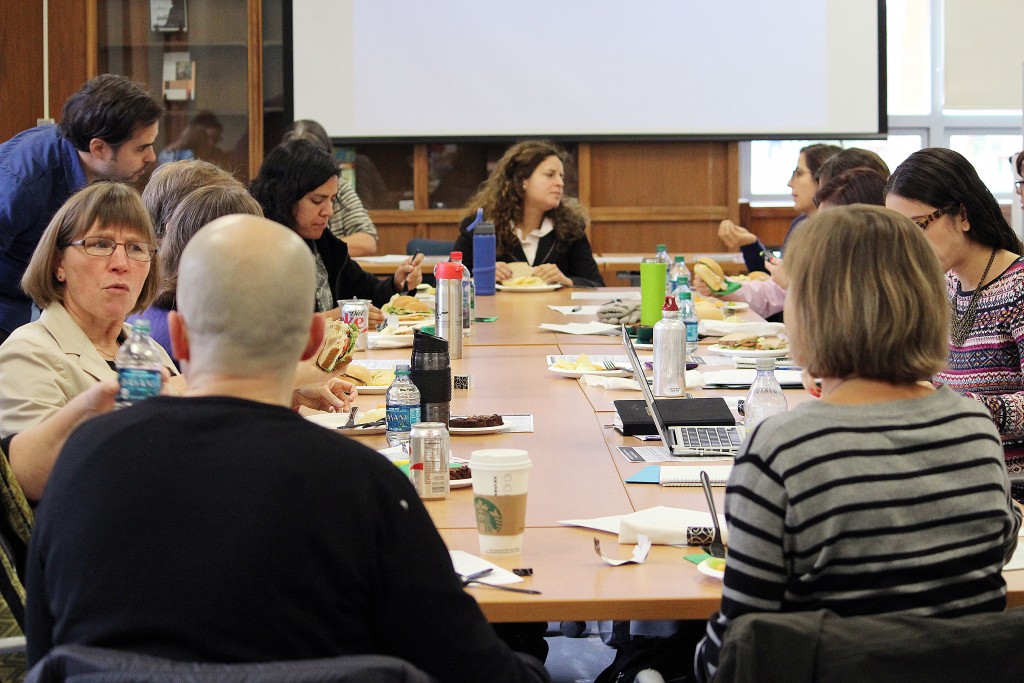
While some were out dining with their parents, other students and scholars met in the library on Saturday to share their research in Latin American studies, from cartographic depictions of El Dorado to the effects climate has on how landscapes are remembered.
Each semester, one of the six participating schools in the Lake Erie Latin American Culture Studies (LELACS) program, which is made up of Binghamton University, Cornell University, University of Buffalo, University of Rochester, Syracuse University and the University of Pennsylvania, hosts LECAS workshop. This semester’s workshop, held in the Glenn G. Bartle Library, included four presenters from BU and one presenter each from Syracuse University and the University of Pennsylvania.
The workshop provided scholars who have done research in Latin American studies with the opportunity to present their findings, receive feedback and hear the work of others in the field.
Luiza Franco Moreira, the chair of the comparative literature department at BU, said that the goals of the workshop were to foster a dialogue among the scholars and to provide a place where they can discuss the aspects of Latin American studies that matter to them.
“These are important moments where we have new ideas and we have avenues where other people respond to our work and we see it from a different perspective and see new ways to develop it,” Moreira said. “I think the main goal is the intellectual dialogue and a supportive development of ideas.”
Brad Skopyk, an assistant professor of history at BU, presented his research on how climate-induced catastrophes shaped the way landscapes were represented in colonial central Mexico. Skopyk said the workshop was a good place to introduce different aspects of his research that he would not have been able to showcase elsewhere.
“I thought it would be a good opportunity to present some of the more cultural aspects of my research to an audience who has more experience with the literary aspects of what I’m doing than what might be the case in a strictly historical conference,” Skopyk said.
Other presenters included Giovanna Montenegro, an assistant professor of comparative literature and romance languages at BU who presented her research on how fantasy locations in literature were represented on maps. Examples she gave were El Dorado and Lake Parima, which were depicted in British and French cartography in the nineteenth century even though map surveyors had already recognized that these places did not exist.
“[The workshop works to] really look back and investigate Latin American culture, its ties to and impact on the global scale, by investigating the history, by investigating popular culture, by investigating events and then tying it all together,” she explained.
Many attendees were looking for information relating to their fields of interest. Idaliz Roman Perez, a third-year graduate student studying comparative literature at BU, said the workshop gave her inspiration for her own research, which focuses on the cultural politics of literature and urban art of Latin America and the Caribbean.
“I want to be on track with this discussion because sometimes it can be an isolated work,” she said. “So to hear other students’ comments, and faculty as well, it gives you strength to continue your own research.”
Olga Blomgren, a first-year Ph.D. candidate studying comparative literature, said that she found the presentations about colonial Latin America especially interesting.
“I’m always encouraged whenever I see and hear presentations on the colonial period,” she said. “I find myself very much in the twentieth and twenty-first century, so I love going back there and thinking about those time periods.”


